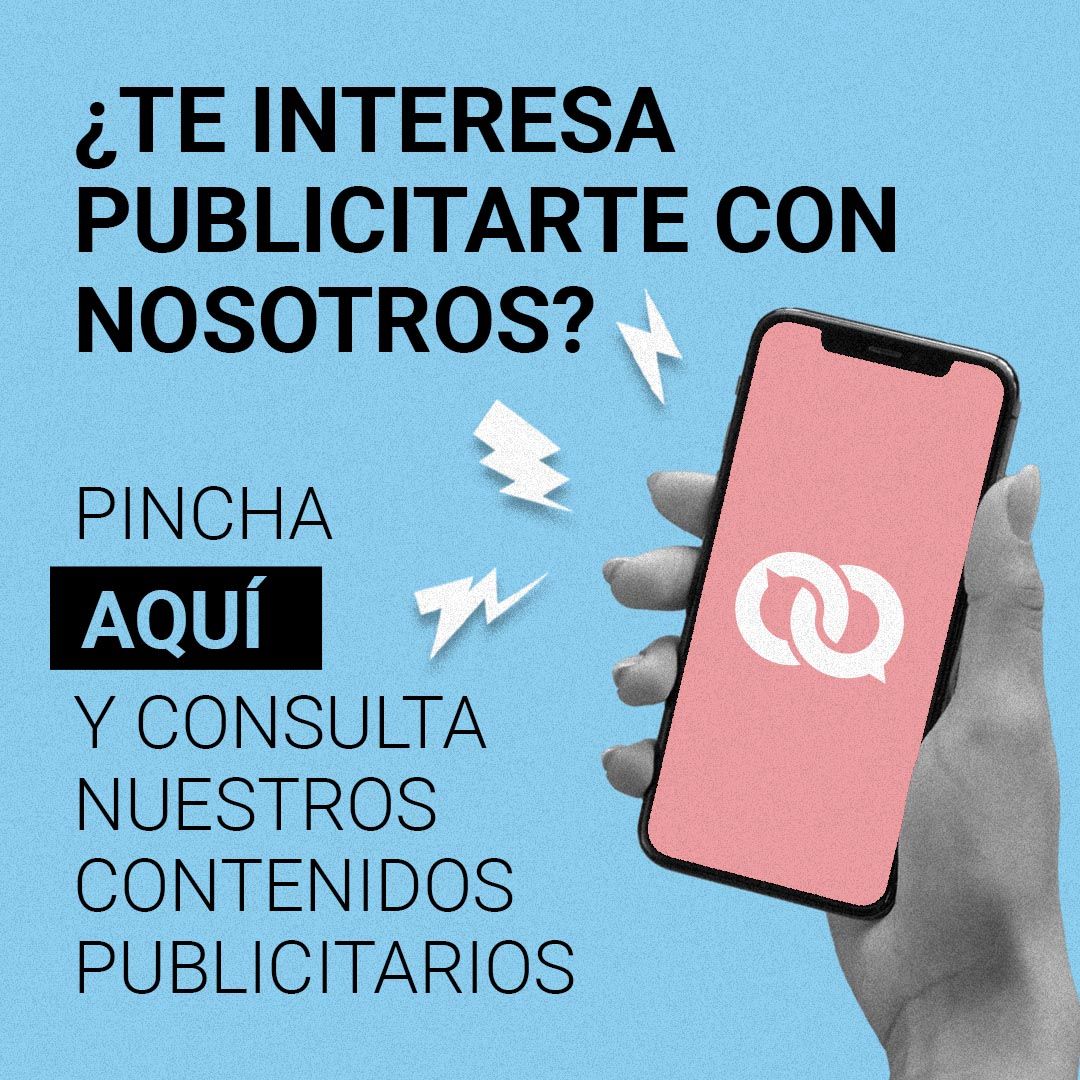If tomorrow it’s my turn to be the victim I want to be the last one. Photo: Ella Fernandez
Me Too Cuba: Safe Community for Survivors of Sexual Assault
31 / mayo / 2023
“There he was, the aggressor. His name was my fear. I didn’t know who he was. I only knew one word: survival.”
-Kelly Martinez-Granda in her book La danza de los espiritus.
“It doesn’t matter how and when it happened. Sister, you’re not alone.” This phrase has once again gained special importance in Cuba with the recent creation of Me Too Cuba, a project independently run by women and LGBTIQ+ people and sexual assault victims, survivors and plaintiffs on the island.
“Aware of the fact that wherever there is a victim of sexual asssault accompanied by others, there was a Me Too, and today this safe space is born (…) given the lack of institutional support on this issue,” a first statement read, published on April 25th on its social media profiles.
This platform’s appearance is linked to the new blaze of the global MeToo movement, after new sexual assault charges were filed against French actor Gerard Depardieu and Portuguese sociologist Boaventura de Sousa Santos. Two figures who have been linked to Cuba’s ruling elite and cultural institutions.
“We work in Sex Education for two reasons: prevention and the chance for survivors to recognize and name the violent experiences they’ve had (…). These include both cis women, as well as members of the LGBTIQA+ community and even cis-heterosexual men,” the group told elTOQUE.
They add: “We want to create a community that can provide them personalized and group assistance, depending on what they ask for, in partnership with other organizations, such as the YoSiTeCreo platform in Cuba, as well as the experience of other survivors.”
MeToo Cuba focuses on sexual violence. The World Health Organization (WHO) defines sexual violence as “any sexual act, attempt to obtain a sexual act, unwanted sexual comments or advances, or acts to traffic or otherwise directed against a person’s sexuality using coercion, by any person regardless of their fdrelationship to the victim.”
For that reason, MeToo Cuba is building support networks, without which it becomes difficult to make a public or legal complaint. “A shoulder, a crucial “yo si te creo” (I believe you), instead of a “te lo buscaste” (you asked for it) and other versions in patriarchal societies like the one in Cuba,” they explain.
The platform’s work is also linked to journalists and the media with specialized features, testimonies and articles about sexual violence, as well as connections with legal professionals. With regard to the latter, the group stresses the importance of paving the way to restorative justice, with a debate that not only affects Cuban society, but also the State and its lawmakers.
While the MeToo movement is known worldwide for its public complaints, this isn’t the Cuban space’s main objective. The support they provide is available upon request, promptly, as the verb “assist” means.
“We want to write up a historiography about the global Me Too movement and the Me Too movement here in Cuba, a personal memory, as a resource that can be used so we don’t feel so alone,” they explain. “We want to prevent sexual violence with sex education.”
Regarding day-to-day operations, they point out: “There are many expected communities getting ready (…). We have set up a dynamic on WhatsApp because it is a secure network. Groups are set up based on interests, special features and only for survivors. Information cannot be used from these spaces for publication, unless a survivor asks for this to be done. “
Sexual violence takes many forms, from verbal harassment to forced penetration. From psychological oppression to the use of physical violence. It can happen anytime, anywhere: at home, at work, on the street. It’s an act of power where victims are, in the majority, women, gender dissidents, minors and feminized bodies.
When Me Too took the world by storm
The global Me Too wave as an organized movement – YoTambien, in Spanish – began in October 2017. Journalists Jodi Kantor and Megan Twohey published an article in The New York Times that exposed Hollywood mogul Harvey Weinstein’s sexual harassment and assault stretching over decades. Weinstein, who has produced countless Oscar-winning movies and box office hits, was considered untouchable.
The now iconic phrase, which was previously coined by Afro-American human rights activist Tarana Burke in 2006, went viral after actress Alyssa Milano used it in a Tweet. The actress took to social media to encourage other women to report and to talk about their experiences of abuse. Burke didn’t start out using the expression as a healing tool, but as a way to empathize with sexual assault victims – especially in marginalized communities. The original mission behind Me Too was to start a small conversation and to create a community of survivors.
However, that Tweet unleashed a tsunami. The hashtag #MeToo was used over half a million times in the first day alone, and was trending in over 85 countries, with spin offs in many other languages.
When Me Too went viral, the Ni Una Menos movement had already been gaining ground a few years before (2015), due to the blood-chilling number of femicides. In 2019, approximately 12 women were killed every day because of gender-based violence. The region also has the highest rate of sexual assault against women in the world. The slogan – accompanied by different mass protests – began in Argentina and spread on a large scale to other countries in the continent, which were revived in 2017 after the Weinstein scandal broke, the struggle to legalize abortion and Thelma Fardin publicly accusing former cast member, Juan Darthes, of rape.
Beyond trials in every one of these cases, Me Too provided a platform for survivors all over the world to share their story and feel supported. The movement pushed laws and public policy to the top of government agendas, to prevent sexual violence and protect survivors. Public accusations also reduced the feeling that aggressors were getting off scot-free and put social tolerance of harassment and other forms of sexual violence on the table.
Lots of these stories have been shared on Me Too Cuba’s social media and spaces, forming a bridge between the island and the global movement.
The faces of gender-based violence in Cuba and citizen-led initiatives
We didn’t have a Weinstein, Darthes or Cosby in Cuba, but sexual and gender-based violence have other names and other struggles.
One of the first cases that went public on the island was that of writer and political activist Angel Santiesteban Prats, who was sentenced to five years in prison in February 2013, for harassment and trespassing. Santiesteban was reported by his ex-wife and mother of his children, Kenia Rodriguez, in 2009, for physical and sexual violence.
The criminal proceeding lasted three years. Once the sentence was announced, many people came out to support the writer and counter the court’s sentence. Santiesteban’s critical stance against pro-government political forces in Cuba led many to believe the trial was “controversial” or that it was just a cover-up for “political prosecution.” Writer Rafael Alcides was one of them, who, in an article under the headline “Lamentations and hope for a newly imprisoned writer,” called the facts “a simple fight.” A “drama in folklore nature which is normally very funny,” the letter of support read.
An open letter launched on International Women’s Day (March 8, 2013) answered Alcides’ words, which added names over the days, and was read aloud at the National Association of Writers and Artists (UNEAC). Signees – female artists, communicators and intellectuals – opposed accusations against Kenia and claimed that the perpetrator’s ideological stance distorted the magnitude of his violence, “the only reason he had been charged.”
Santiesteban was released on parole in 2015, having served two years and a half of his sentence.
Almost six years had passed after Santiesteban’s sentence that Cuban influencer Alex Otaola asked Dianelys Alfonso (La Diosa) -on the air – about the beatings and rape committed by Jose Luis “El Tosco “ Cortes, during the time she formed part of NG La Banda.
La Diosa’s positive response went hand-in-hand with a swift process of delegitimization, personal critique and insults. In response, a support and sisterhood movement was created, using the hashtag “YoSiTeCreo – Cuba); a name that would baptize the first Cuban platform offering support and follow-up checks for people living with domestic violence.
“It doesn’t matter who it is, if it’s a famous actor, an Army Colonel or political dissident; it doesn’t matter how much time has passed since the episode of abuse; gender-based violence needs to be made visible; it doesn’t matter what the emotional relationship is between the victim and the abuser: gender-based violenced needs to be made visible, reported, punished and reparations need to be made. Victims of gender-based violence need to be listened to, supported and protected,” the Cuban Feminist Assembly group wrote in an open letter, which went public in June 2019.
YoSiTeCreo in Cuba was a key element in La Diosa’s case, and in the assistance given to other survivors later. The platform also picked up on the debate about the pressing need for a Comprehensive Gender-based Violence Act and, in 2020, a Support Line for Victims of Gender-Based Violence was created.
El Tosco – the king of Cuban timba music, master of the flute and Dianelys’ aggressor – died on April 18, 2022, without having been taken to court and without any Cuban institution responding to the accusations.
In December 2021, the first five testimonies from survivors of sexual assault at the hands of folk singer Fernando Becquer came to light when they were published by independent magazine El Estornudo. Over weeks, other names were added, with approximately 30 plaintiffs.
Once again, women and feminized bodies turned cyberspace into their battleground. The feminist agenda was once again Cuba’s public agenda. This became clear with the (almost immediate) circulation of the so-called “Comprehensive Strategy to Prevent and Provide Assistance for Gender-Based and Domestic Violence,” and the Federation of Cuban Women (FMC) and Cuban Institute of Music’s (ICM) indifferent and simple position on social media.
At first, the folk singer was charged for the sexual assault of six women and sentenced to five years in prison; according to what the old 1987 Penal Code stipulates, which he was tried under. It had only been about four months since the initial ruling, that Havana’s Provincial Court announced that Becquer would serve his sentence “at his residence,” after new harassment charges were filed.
In November 2022, a group of Cuban women accused the director of the “Amadeo Roldan” Conservatory in Havana, Enrique Rodriguez Toledo, of having sexual relations with teenage students. In testimonies collected by CiberCuba, we learn how the teacher abused his position of power to harrass and rape girls over almost three decades. He harassed them, raped them and humiliated them. Survivors say that the institution and student body were aware of this abuse.
“Of course, I saw how all of this was happening. Of course, I also saw how some of my 16 or 17-year-old classmates were happy to be with Enriquito, because Enriquito had his own house and lived alone. Because it was better to be with Enriquito than to be with their families who demanded a lot. Enriquito practiced that “Chinese” energy and “breathing” and he was really nice. Until the day Enriquito stopped being so nice and the disaster began,” Amanda Toirac, a student who graduated from the Conservatory as a pianist in 2013, wrote on Facebook.
Complaints of sexual assault within Cuban prisons – a systematic practice that is linked to the political violence dissidents suffer – have also gone public. In a conversation with Diario de Cuba, activist Yeilis Torres Cruz tells us how she was raped by two men who made her call them “Manguera” and “Mandarria”, on the third day of her imprisonment at the jail on 100 and Aldabo Streets. The perpetrators were taking orders from a captain identified as Abel. This name reappeared in Gabriela Zequeira Hernandez’s testimony, who was arrested during the social uprising on July 11 and 12 in 2021.
We want to stay alive
Sexual violence exists in Cuba and is tolerated a lot of the time. High-profile scandals – and those that don’t make the headlines – allow us to verify this. Sexual violence is flourishing while the social and structural conditions that allow for it are created.
Yes, Cuba did sign the Convention on the Elimination of All Forms of Discrimination Against Women, although it hasn’t ratified the protocol again. Yes, it did add gender-based violence as a crime in the Penal Code, which has been in force since December 2022. Just like the country has a Comprehensive Strategy to Prevent and Provide Assistance for Gender-Based and Domestic Violence and a National Program to Empower Women.
However, gender-based violence continues to be a social problem on the island, demanding urgent attention. To the extent that feminists and independent civil society organizations demanded the Government to declare a “state of emergency because of male violence” earlier this year, given a surge in femicides and the disappearance of women and girls.
“They’re killing us,” the appeal reads on the YoSiTeCreo platform. It also describes how a state of emergency is a necessary mechanism to “establish protection measures and erradicate behavior and attitudes that promote gender-based violence, along with protection protocols for survivors.”
In recent years, gender-based violence has been gaining ground in public debates. This is partly thanks to the efforts and mobilization of independent citizen-led groups. Support networks, like Me Too Cuba, have been essential for providing aid to survivors of sexual violence and other forms of gender-based violence. Initiatives which also continue to advocate for the immediate passing of a comprehensive gender-based violence act, that focuses on preventing and social reparations; a law that is able to introduce alternative and more effective forms of justice.
“In Cuba, lots of women’s rights activists and survivors have been assisting victims of sexual violence for years: from stories that have been published and others that haven’t been covered by the media or the courts. We’ve done this on our own, in small groups, with some kind of support network,” Me Too Cuba explains.
Campaigns for collective action that have been launched have been key in guaranteeing changes in women’s rights. Campaigns continue despite the Government’s political violence against activists.
This article was translated into English from the original in Spanish.


If you believe that our journalism is important for Cuba and its people, we want you to know that this is a critical moment.
Behind each publication there is a team that strives to ensure that our products meet high quality standards and adhere to professional and ethical values.
However, to keep a close watch over government, demand transparency, investigate, analyze the problems of our society and make visible the hidden issues on the public agenda is an effort that requires resources.
You can contribute to our mission and that is why today we ask for your help. Select the way you prefer to send us a donation.








comments
We moderate comments on this site. If you want to know more details, read our Privacy Policy
Your email address will not be published. Mandatory fields are marked with *